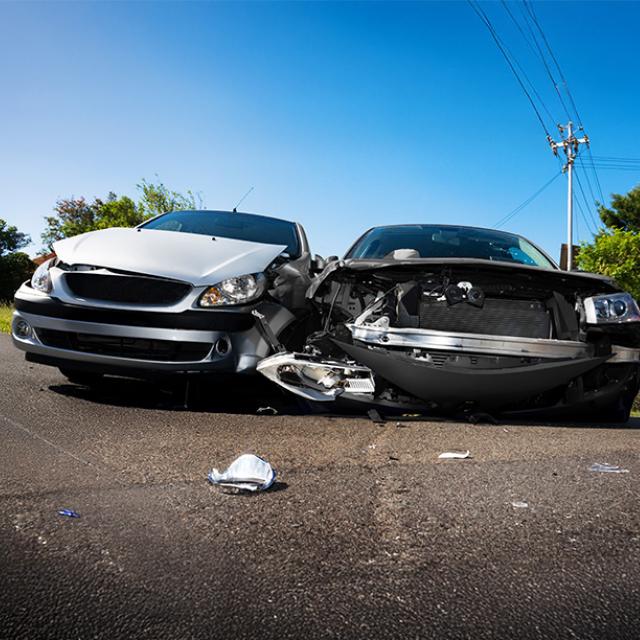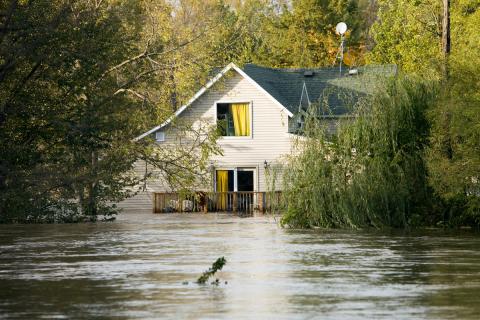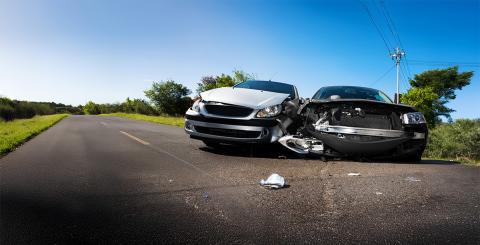Car accidents: At fault or not?

So it finally happened, the moment every driver dreads: you’ve been involved in an accident. You’re probably wondering how it will impact your car insurance, what steps you have to take, who pays for the repairs, whether you have to report the accident, and, most importantly, who’s at fault! These are important questions that deserve answers. Here are some practical tips on what to do in this situation, including when and why to use a Joint Report and how liability is determined in the event of a fender bender.
What to do in case of a car accident
First of all, make sure you’re safe. That’s the most important thing!
If anyone one is injured, even if it’s only minor, call 911 right away and follow the first responders’ instructions.
If everyone is OK, follow these step-by-step instructions in case of an accident:
- Start by moving your vehicle to a safe location, if you can safely to do so. If it’s too damaged, have it towed. You could be held liable if your vehicle causes another accident, even if you’re not at the scene.
- Fill out a Joint Report with the other drivers involved. Write everything down and take photos of the vehicles affected if you can.
- Then report the accident to your insurer as soon as possible. The longer you wait to file a claim, the greater the risk you won’t be compensated by your insurer if the damage to your car ends up being more serious. Even if you don’t intend to file a claim, for example if you just had a minor fender bender, you still need to report the accident.
- If necessary, file an online claim via your insurer’s website or call your insurer.
- Wait before making any repairs: the insurer will have to authorize them once they’ve examined your car for you to receive compensation.
Car accident: What the law says
In the event of a car accident, the law stipulates that the drivers involved must exchange all essential information. If a peace officer arrives at the scene, you must disclose this information to them. Failure to do so could result in a fine. Here is the information you are required to exchange:
- Your name, contact information, and driver’s licence number
- The name and address of the vehicle’s owner, as shown on the registration certificate, if applicable
- Your vehicle’s licence plate number
- The information shown on your car insurance certificate, such as the name of the insured and the insurer, as well as the model and policy number
In addition, if the accident involves an object, such as a traffic sign or fence, an animal weighing more than 25 kg, or an unoccupied vehicle, you must notify the nearest police station and provide all the information required by police to identify you.
Finally, you are required to remain at the scene of the accident and provide assistance to anyone who needs it, whenever possible.
What’s a Joint Report and when do you need to complete one?
A Joint Report, or “joint accident report,” is the form that people involved in an accident use to identify themselves and report the accident and the damage caused by their vehicles. You can find one on the GAA (Groupement des assureurs automobiles) website. Car accidents are recorded in a database managed by GAA for a period of six years.
Important! The Joint Report is used to determine the facts; it is not an admission of liability. Under no circumstances should you admit that you were in the wrong; that’s the insurer’s job, after their investigation.
Who determines liability following an accident?
Your insurer determines your liability in the event of an accident. To do this, they use the Direct Compensation Agreement (DCA), an arrangement between auto insurance companies that simplifies the settlement of an automobile claim. The DCA applies to accidents occurring in Québec between at least two vehicles whose owners have been identified. In such cases, you must submit your claim to your own insurer. The liability of those involved in the accident is then determined based on the fault charts set out in the DCA.
Important: The DCA does not apply to hit-and-runs, since the owner of the vehicle causing the damage is unknown. To be compensated by your insurer in the event of a hit-and-run accident, you need an auto insurance policy that includes All Perils or Collision or Upset coverage. Talk to your damage insurance representative to learn more!
Who’s at fault if you run a red light, an object hits your car, or someone hits your car in a parking lot?
These types of situations can happen to even the most careful drivers. But would you be covered? Who would be at fault in the car accident? Which insurance would pay for the repairs? Let’s dive right in!
- You run a red light and cause an accident
Even the most diligent drivers can make a mistake, like running a red light. If it happened to you, would you be compensated?
Yes, you’d be covered—provided you have the right coverage under your insurance policy, either All Perils or Collision or Upset. If you only have Third-Party Liability coverage, you won’t be compensated for damage to your car.
- An object hits your car
When an object hits your car—whether it’s a falling branch or a neighbour’s basketball hoop that tips over onto your parked car—to be compensated by your insurer, you’d also need to have taken out Perils other than Collision or Upset coverage.
- Someone hits your car in a parking lot
The eternal question: Who’s at fault in the event of a collision in a parking lot, say, while you’re at the grocery store? We often think that liability is shared between the two vehicles involved, but that’s not true here. In this situation the Direct Compensation Agreement applies, provided the right conditions are met. Your insurer and the other driver’s insurer will use the DCA to determine who is at fault.
Of course, regardless of the situation, the first step is to call 911 if need be, and always notify your insurer once you’ve completed a Joint Report! Did you know that our insured members can quickly file a claim online? This is even more important if you have “one-way insurance.” Contact one of our damage insurance representatives to learn more. Because Promutuel is THERE to provide you with the right coverage for your situation, so you can drive with total peace of mind!




